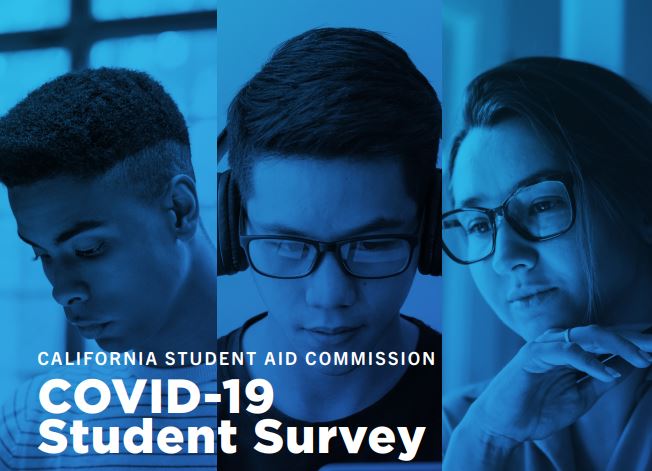A California survey reveals roughly 71% of students have been financially impacted due to the pandemic
October 6, 2020
The California Student Aid Commission released the results of the “Spring 2020 COVID-19 Student Survey,” which found 71% of currently enrolled college students have lost some or all of their sources of income due to the COVID-19 pandemic.
The statewide survey, conducted between May 15 and June 1, was emailed to a random sample of 76,000 college and high school seniors who submitted financial aid applications for the 2020-21 academic year, making it the largest poll in the nation to decipher how the pandemic impacts students, according to CSAC.
The CSAC is the state agency responsible for managing financial aid programs for students attending public and private universities, colleges and vocational schools. The Commission serves as a resource to California policy and lawmakers regarding academic affordability.
The survey was designed by the Commission and researchers from the California Education Lab at UC Davis as a way to help to understand the issues students worry about the most during this uncertain time.
Most students are anxious about what the future holds and how they will afford college and other basic needs expenses according to the poll.
There have been large increases in the levels of students’ worry and anxiety about their ability to pay for and attend school full-time, maintain the health and well-being of themselves and their families, and meet basic needs like food, housing, transportation, technology and healthcare.
The results of the survey also include anonymous responses from students explaining their answers to specific questions.
One student respondent said, “My degree is important, but bills are not going to wait for me … I have to pay them.”
Roughly 46% of students have experienced a change in their living situation since the beginning of the pandemic.
Over 80% of current students have either changed some aspect of their plans for the fall semester or are still uncertain of their future academic plans.
“COVID-19 has changed my plans for college financially and emotionally. I am currently debating whether I should drop my fall semester classes because I need to find a full-time job to help my family,” an anonymous student respondent said.
90% of currently enrolled college students reported concern about shifting to online classes.
“My current challenge is being a mother on top of [being] a student. I was able to go on campus to do my learning, free from distraction of my children,” a respondent said. “Now I am trying to find the time to do my classes solely online, on top of taking care of children that were also enrolled in school and now homeschooling.”
To gauge the climate of its own student body, CSUN has initiated its own survey called “Fall 2020 Virtual Campus Student Check-in Survey” to learn more about the experience of students during virtual learning.
Vice President of Student Affairs William Watkins sent an email to students on behalf of Student Affairs on Wednesday, encouraging students to fill out the survey to allow their voices to be heard.
The survey is voluntary and will be sent out every month for the campus administration to better understand how to support students during this time. Watkins noted that the responses are not anonymous.
53.8% of CSUN student respondents are concerned about paying bills, reflecting similar results to CSAC’s data.
Findings also show that about 37% of respondents are concerned with accessing or using technology and roughly 32% are uneasy about having access to health care.
“A small number of people at CSUN will be able to connect your name to your survey responses. We’ve done this because we want to be able to connect students to resources that may address their concerns,” Watkins stated in the email. “Beyond this small number of people, no one else will be able to link your responses to your name or other information that might identify you.”
CSAC also plans to conduct further research on the topics later this semester.
Edited at 11:58 a.m. on Oc.t 7.


